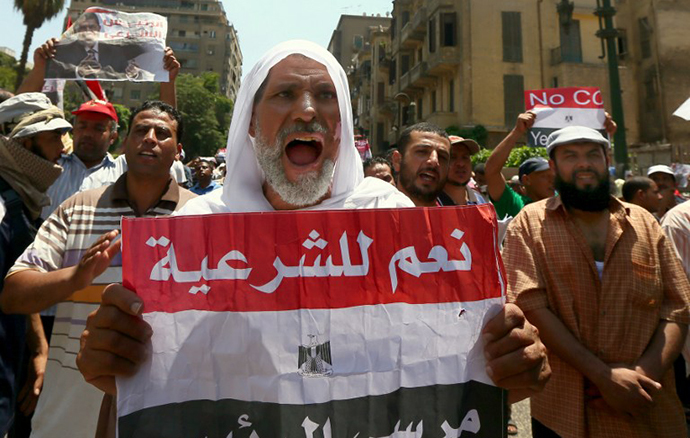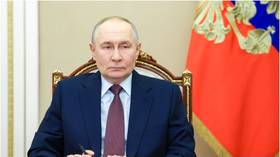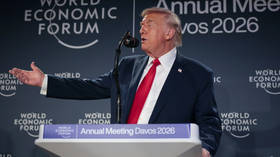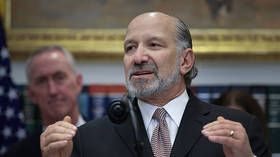Saudis’ unprecedented break with Washington over Egypt

One of the least commented aspects of the ousting of Egypt’s Morsi is the defiant act of the Saudi Royal House in backing the ouster of the Brotherhood and supporting the military.
The Saudi move is unprecedented in its open defiance of the White House's declared backing for the Muslim Brotherhood. The implications of the split are huge.
Twilight in the desert?
Since 1945 when on his return from the fateful Yalta Conference,
US President Roosevelt met Saudi King Ibn Saud and won exclusive
rights for the Rockefeller-group of oil companies to Saudi
Arabia’s vast oil wealth, the relationship between Saudi and US
foreign policy has been one of almost satrapy status for the
Saudis. Following the Kissinger orchestrated 1973 “oil
shock” in which OPEC raised its price by some 400%,
Washington extracted a pledge from the Saudis that they would
insure that OPEC sold its oil only in dollars, thereby ensuring
the continued dominance of the US dollar as a world reserve
currency. In return, Washington agreed to sell US arms including
training the Saudi Air Force.
And in 2010 just as Washington launched its Arab Spring
“democracy” offensive in Tunisia, Egypt and across the
Islamic arc of crisis, the Obama Administration announced the
largest arms deal in US history. The US agreed to sell the Saudis
84 F-15s new and upgrade another 70 as part of a €46 billion
deal, the biggest arms deal in US history, as it prepared to
isolate Iran.
As we reported in an earlier article, before the Egyptian
military coup, the Saudis had given secret assurance to Defense
Minister and Chief of the Army, General Abdul Fattah al-Sisi,
that the Saudis along with other conservative Gulf oil states
including Kuwait and UAE would guarantee financial support should
the Obama Administration cut the €1 billion annual aid to
Egypt’s military in retaliation for ousting
their man, Morsi.
On July 17, the newly-sworn-in Egyptian transitional government confirmed that it has received €6 billion in grants, loans and fuel from Saudi Arabia and the UAE.
Saudi Arabia approved €4 billion in aid to Egypt and the UAE has
offered €2 billion in desperately needed support for the economy.
The Saudi funds comprise a €1.5 billion central bank deposit,
€1.5 billion in energy products, and €750 million in cash, Saudi
Finance Minister Ibrahim Al-Assaf said. The UAE will make a €750
million grant to Egypt and a €1.5 billion loan in the form of an
interest-free deposit with Egypt's
central bank.
The news is a double slap-in-the-face to Washington who had insisted that Morsi’s government buckle under too harsh IMF conditions as a precondition for financial help.

Qatar reacts dramatically
Conspicuously, one Gulf energy-rich state absent from the aid is
Qatar whose Emir Hamad bin Khalifa al-Thani had poured more than
€6 billion in Egypt since the revolution two-and-a-half years ago
and perhaps another €7 billion to bankroll Islamists in Libya,
Syria and Gaza, the Palestinian enclave run by Hamas, an offshoot
of the Muslim Brotherhood. Qatar is home to the US Central
Command’s Forward Headquarters and the Combined Air Operations
Center. And, most notably, until the Saudi and UAE-backed
military coup against Brotherhood rule in Egypt on July 3, Qatar
was home to leading members of the Muslim Brotherhood and one of
its major financial backers in Syria, Egypt, Libya, and across
the Islamic world.
Within minutes of the Saudi and UAE backed Egyptian coup, the
Emir of Qatar took note of the implications and announced his
abdication in favor of his son, Tamim. Hamad bin Jassem al-Thani,
who had shaped Qatar’s pro-Muslim Brotherhood foreign policy, has
been silenced, replaced by a military man who had been serving as
deputy interior minister. The new Qatar leadership is now using
words like “reassessment”, “recalibration” and
“corrections” to discuss their foreign policy. In brief,
they dare not risk total isolation within the Saudi-dominated
Gulf Arab states.
The Saudi decision to take bold action to stop what it saw as a
disastrous US Islamic strategy of backing Brotherhood revolutions
across the Islamic world has dealt a blow to the mad US strategy
of believing it can use the Brotherhood as a political force to
control the Islamic world more tightly and use it to destabilize
China, Russia and the Islamic parts of Central Asia.
The Saudi monarchy began to fear that the secretive Brotherhood would one day rise against their rule as well. They never forgave George W. Bush and Washington for toppling the Baath Party secular dictatorship of Saddam Hussein in Iraq that brought a majority Shi’ite to power there, nor the US decision to topple close Saudi ally Mubarak in Egypt. America’s dutiful “vassal state” in the Middle East, Saudi Arabia, revolted on July 3 by backing and supporting the military coup in Egypt.
Aside from loudly protesting the Egyptian generals’ coup against their Brotherhood allies, Washington so far has been able to do little, an indication of the declining US global power. The Pentagon has sent two amphibious assault ships carrying 2,600 Marines to the southern Egyptian Red Sea coast. The huge USS Kearsarge with 1,800 Marines and the USS San Antonio with 800 Marines, “moved up into the Red Sea and parked off Egypt, because we don’t know what’s going to happen,” stated General James Amos, commandant of the Marine Corps.
Washington is suddenly in a major foreign policy disarray as the
new Egyptian interim government is sworn in. To be continued…
The statements, views and opinions expressed in this column are solely those of the author and do not necessarily represent those of RT.
The statements, views and opinions expressed in this column are solely those of the author and do not necessarily represent those of RT.













